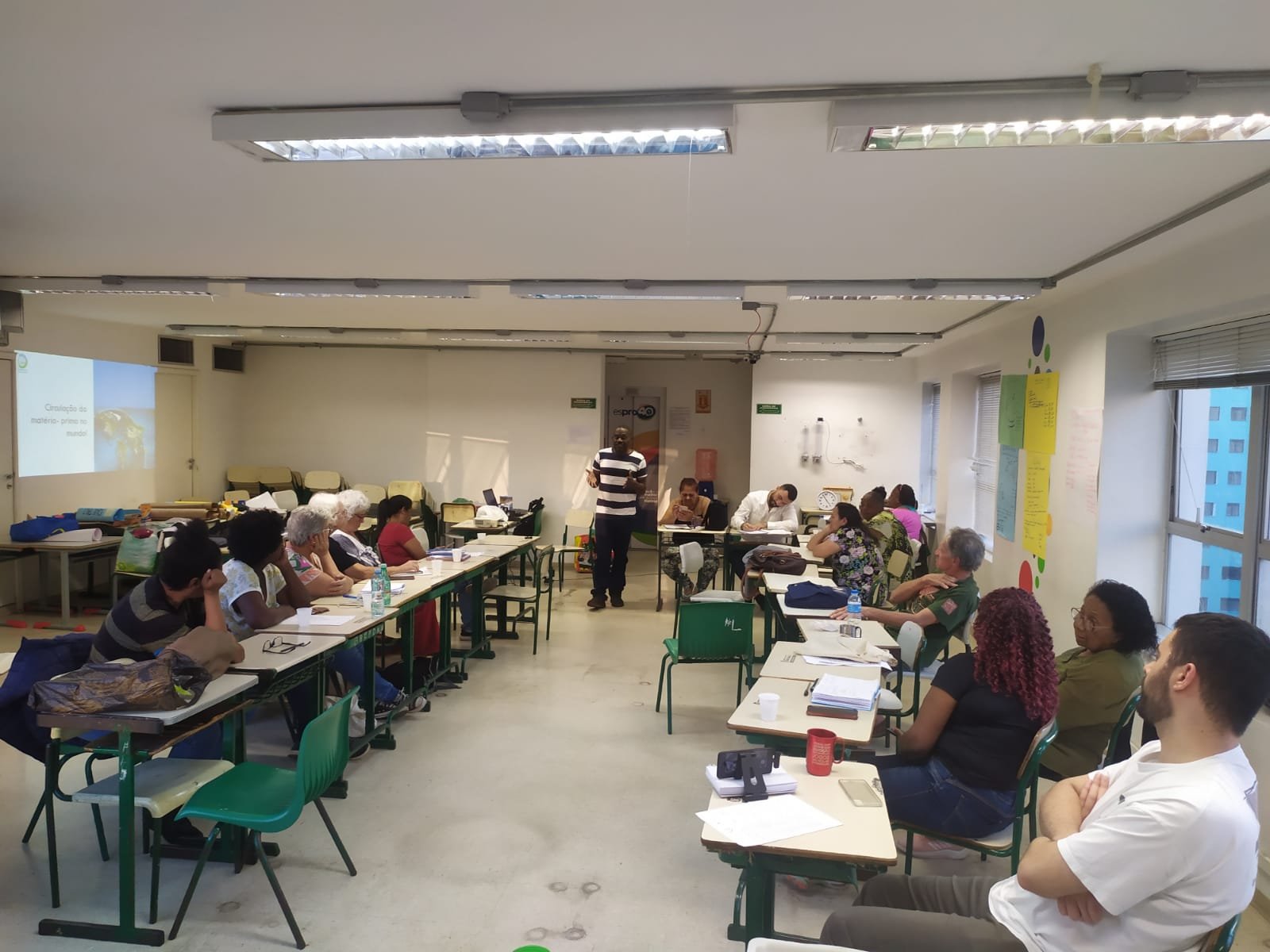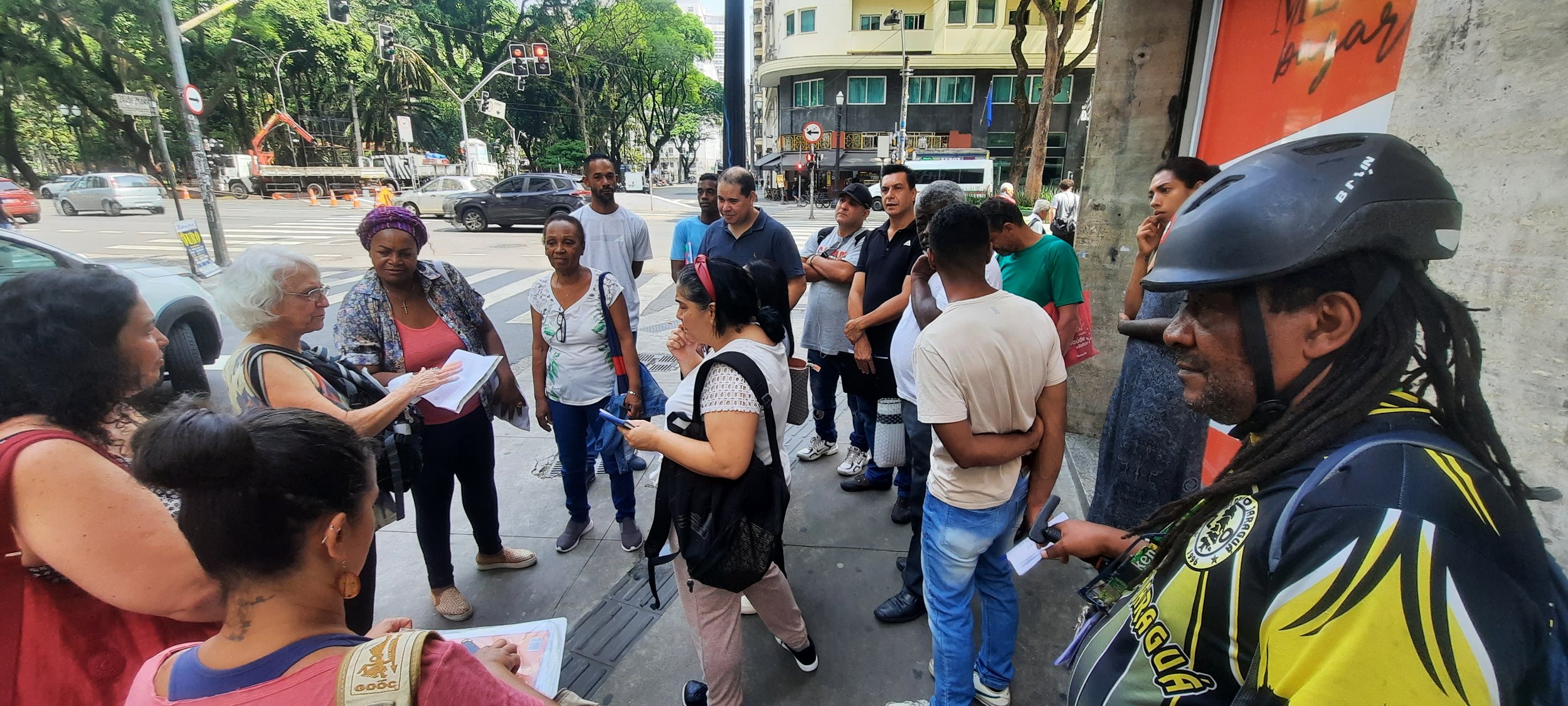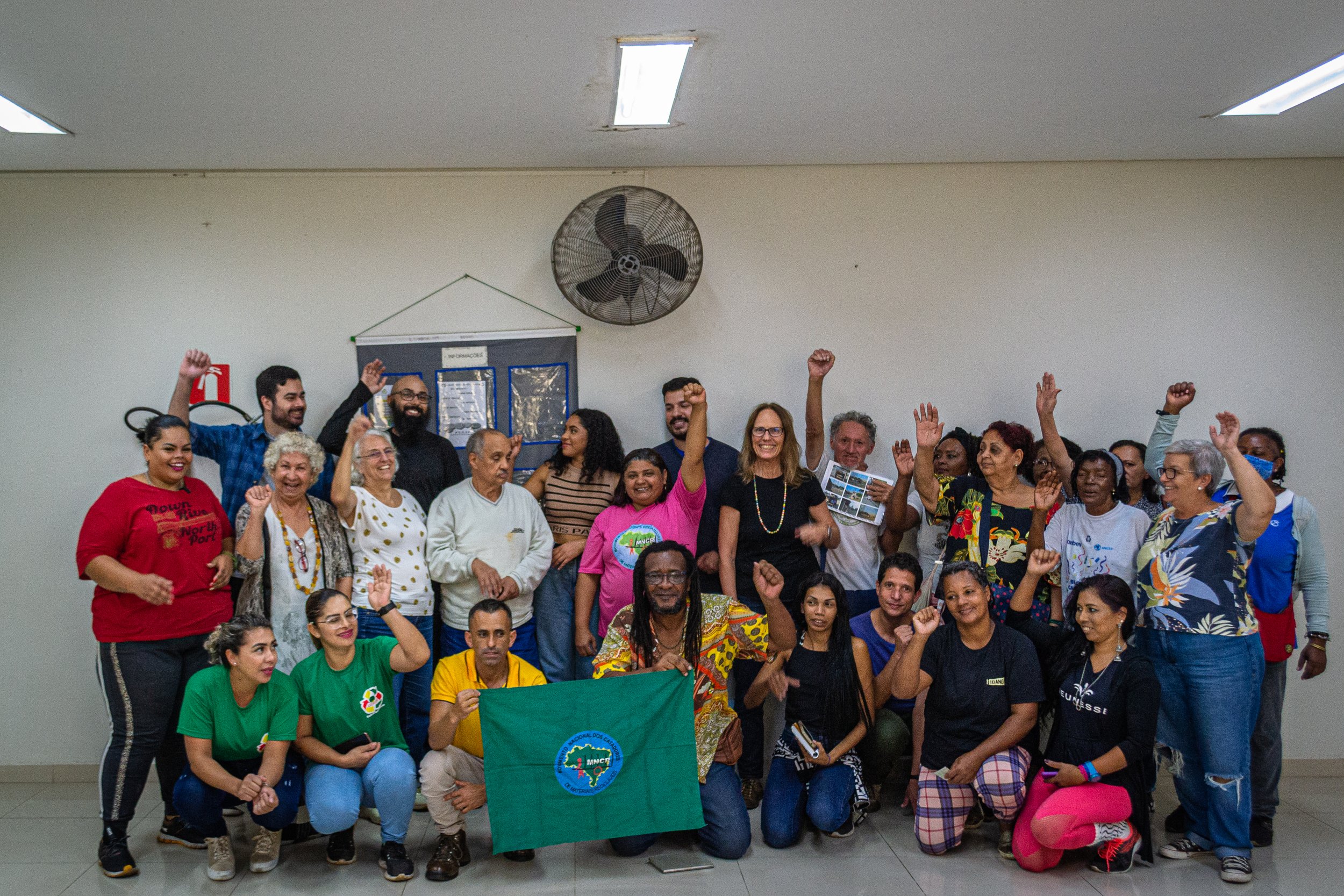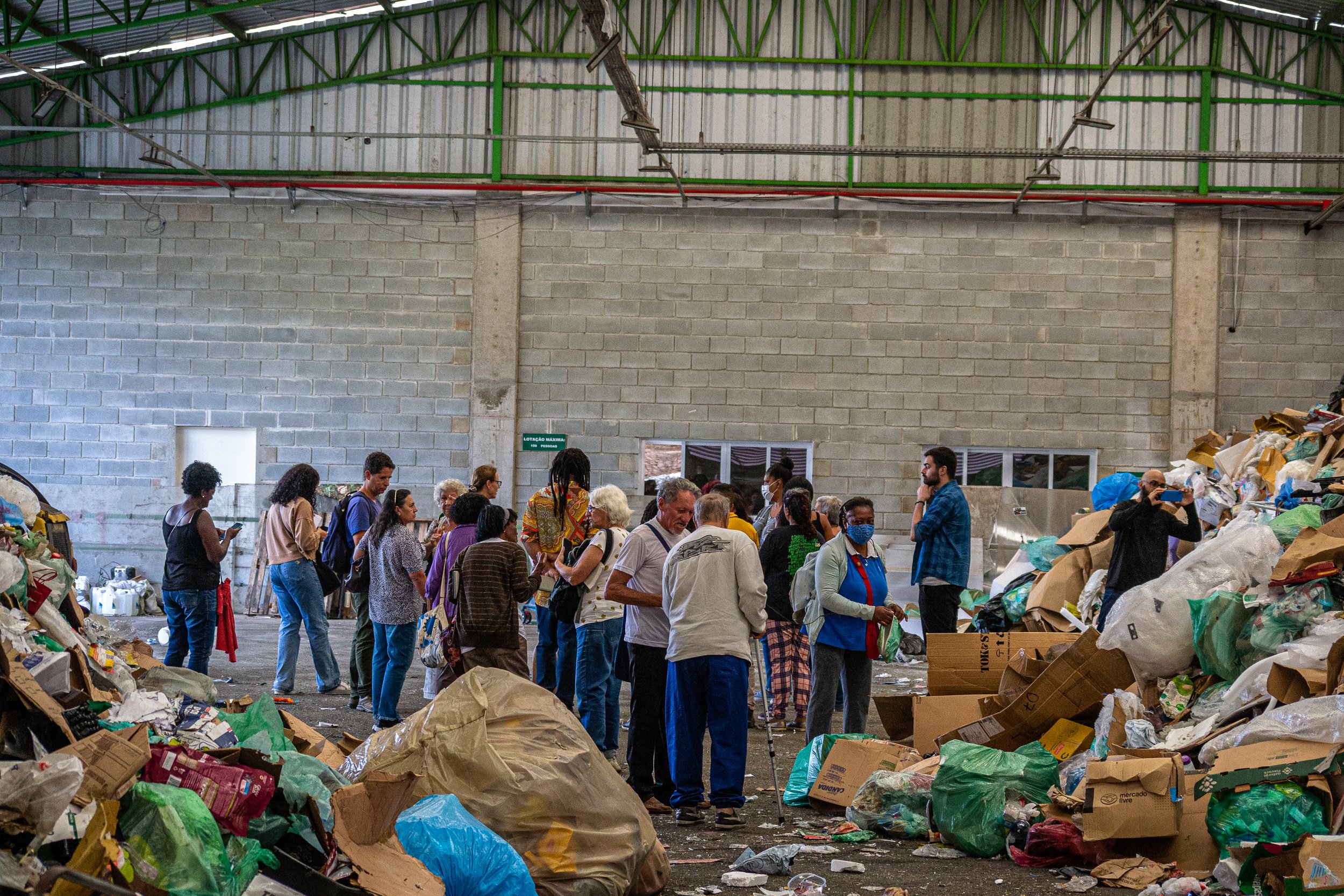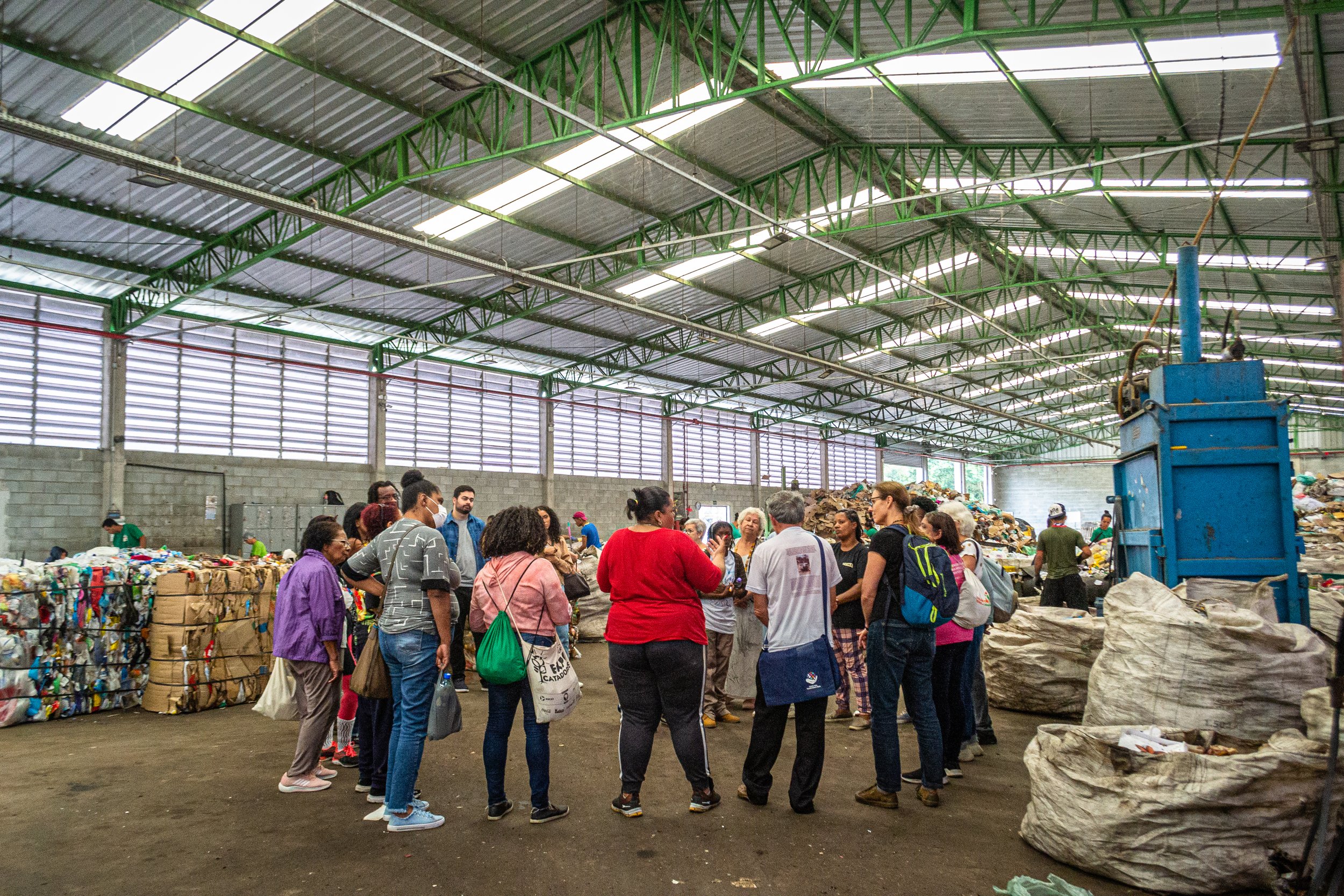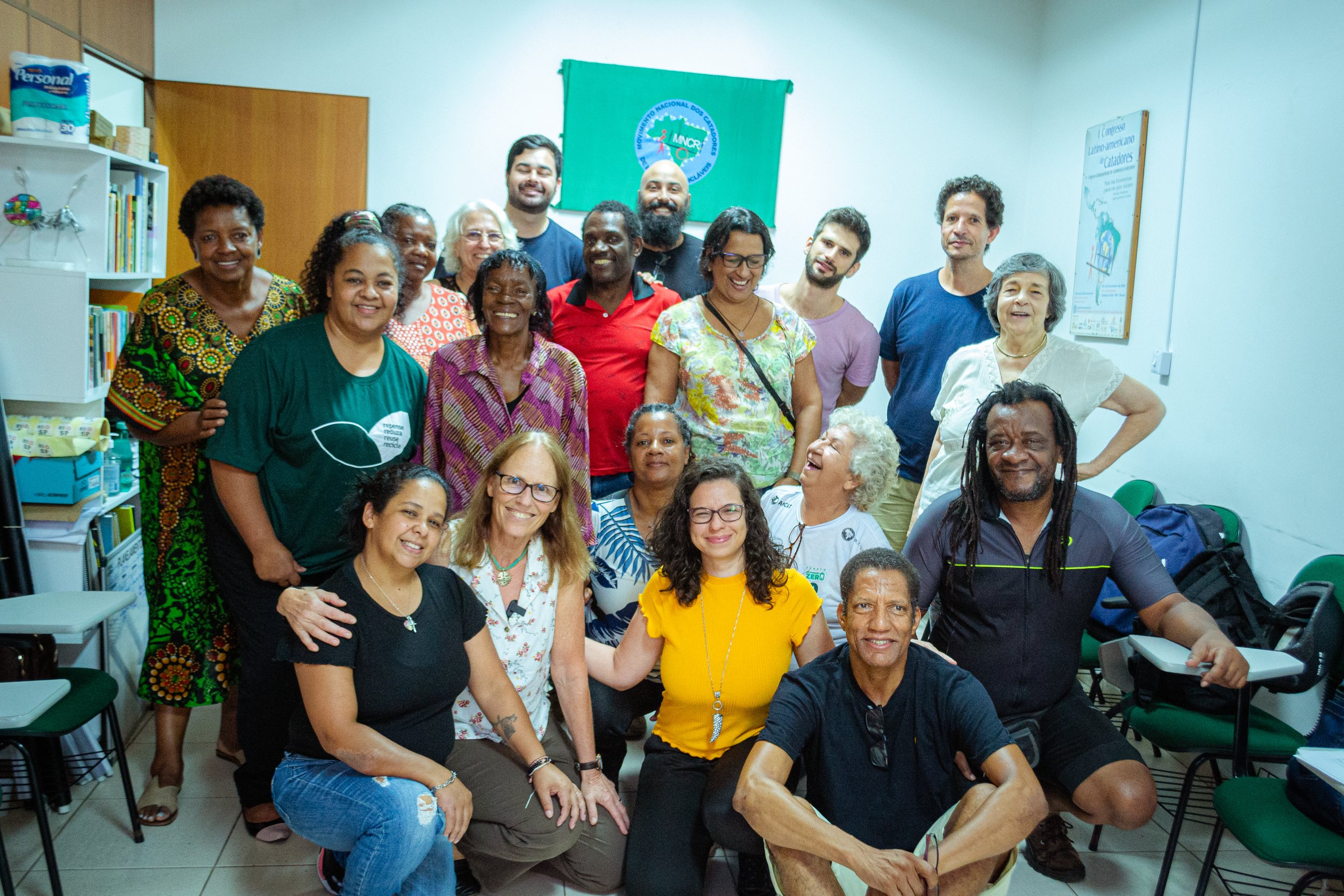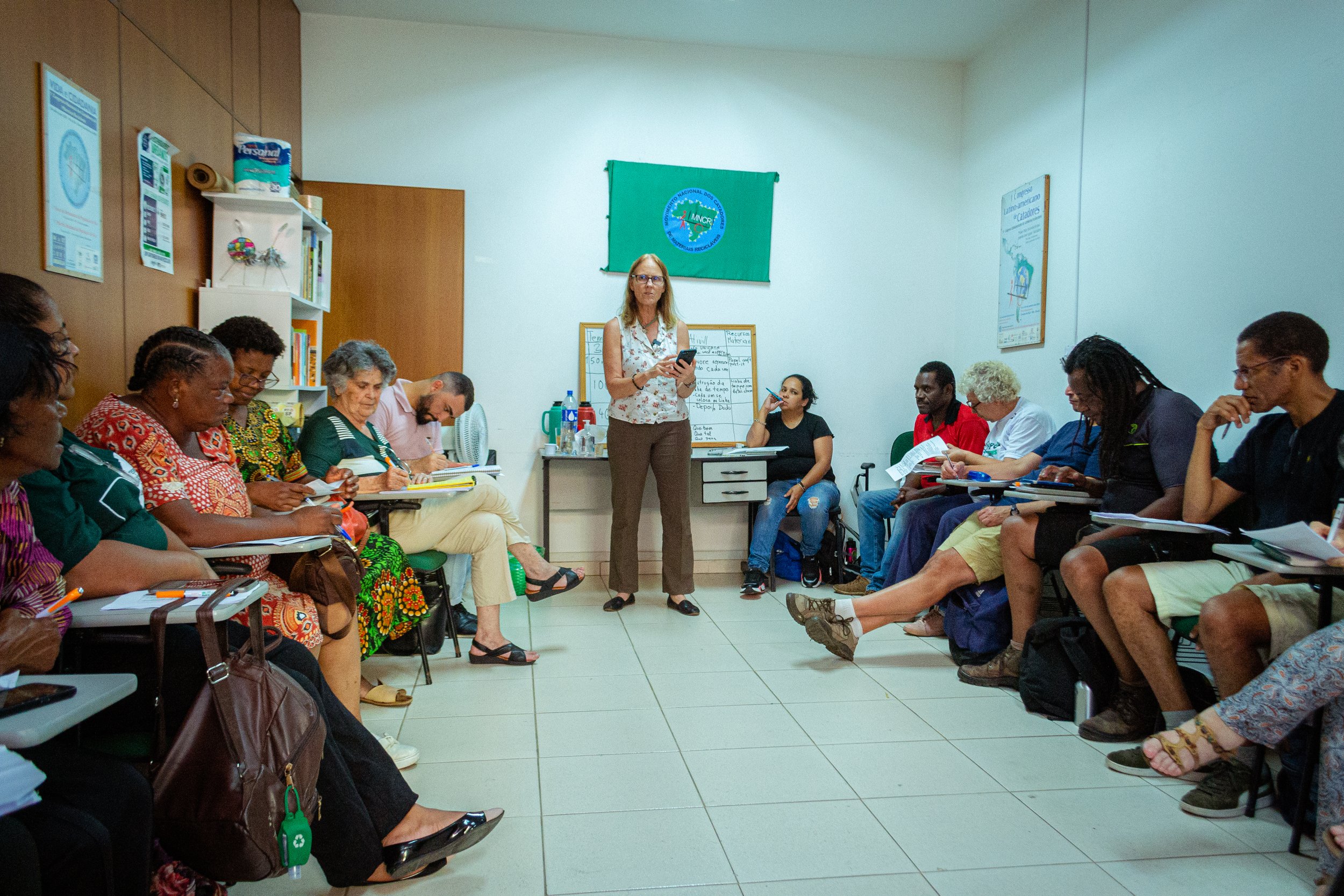University of and with Waste Pickers
A university with and for waste pickers, where informal workers attend educational and training opportunities on diverse topics relating to social responsibility, entrepreneurship, waste management, circular economy, and more to promote sustainable livelihoods.
UNICATA is a construction between waste pickers and academics that aims to that aims to cover with adequate pedagogical and didactic tools the specific knowledge required for everyday contexts.
-
Inclusive and accessible space
Educational model based on popular education pedagogy (Transformative teaching practice)
Innovative and appropriate curriculum content (social, economic and environmental sustainability)
Political and environmental education, income generation, sustainable business, circular economy, public policy, etc.
Participatory research experience
-
Pair teaching
Teaching focused on local contexts
Cross-cutting themes with attention given to issues of social class, race and gender diversity
Philosophy of ‘Buen Vivir’
Sustainability driven content
citizen science
-
Participatory Research
Pilot project
Mobilization and communication
Monitoring and evaluation
Formation of Councils (Management Council, Advisory Council)
Project Timeline
UNICATA Course
“Solid waste management and governance with the inclusion of waste pickers for a sustainable and fair society”, composed of 6 modules.
Based on Paulo Freire’s popular education pedagogy, the democracy of knowledge and the practice of peer learning.
Prepared from a survey carried out with waste pickers in São Paulo in 2022 to understand their aspirations, needs and desires in relation to the possibility of studying.
Content adapted to the specific context of the city where the course is offered.
Open to waste pickers with or without completing basic education, avoiding structural barriers and exclusion criteria.
Classes adapted to the needs of students with the use of different means of communication in their academic production (video, audio, group work).
For each module completed, students receive a certificate of completion of the extension course issued by the University of Victoria (UVic) and the Federal University of ABC (UFABC).
UNICATA-News
Made by and for waste pickers
Research is an integrated component in every module taught by UNICATA. Given our participatory, inclusive and democratic methodology, we identified citizen science as the best approach for building research and reflection with our students. We have collectively decided to structure our research projects for each module in form of a community newspaper.
In this first edition, you will hear through the students’ projects: What UNICATA is and how education can transform lives (pg. 2). You will also see the types of transportation used in selective waste collection and the daily work routine (pg. 5). You will understand the invisibility and the fight for recognition of waste pickers (pg. 9) and learn more about who pays for recycling in Brazil (pg. 10). Next, you will learn about the importance and challenges of environmental education (pg. 12).
In addition, you will learn how climate change affects waste pickers (pg. 15). You will learn how to fully reuse waste (pg. 17). You will also understand the revaluation of handicrafts (pg. 19) and how crafts can be a way to create, heal and innovate (pg. 21). Finally, you will enjoy the section on what resource recovery is and what it represents (pg.24). We conclude with a poem by one of our students (pg.26). UNICATA hopes you enjoy reading our news!
Get the Latest Updates Here!
Get the Latest Updates Here!
